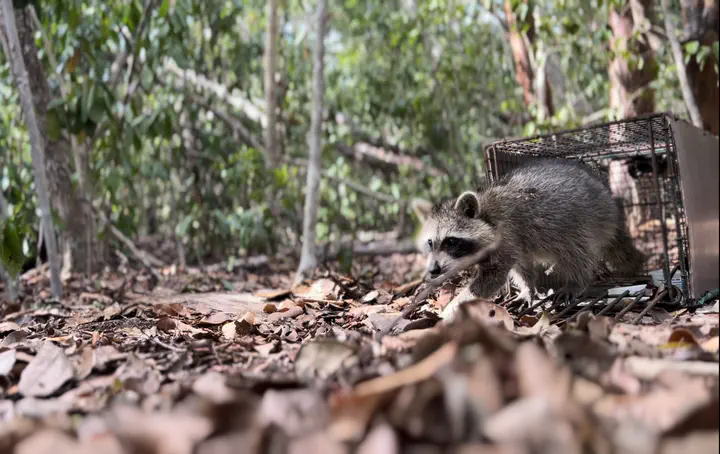Key Largo Mesopredators

The Key Largo mesopredator project is a collaboration between Southern Illinois University, the North Carolina Museum of Natural Sciences, and the U.S. Fish & Wildlife Service, and led by MS Student Kelly Crandall. While historically raccoons and opossums are the apex predators on Key Largo, invasive predators such as the Burmese python and feral cats have become a fixture on the landscape in recent years. In other regions of South Florida such as Everglades National Park mesopredators have been almost completely eradicated due to predation by pythons, while the Key Largo mesopredator populations are still relatively robust. The implications of losing the mesopredator population on Key Largo has not been studied previously, and the ecological effects could be wide spread due to their role as native predators as well as seed dispersers. The goals of the project are to see how spatial distribution of raccoons and opossums differ along the urban-wild gradient of the island, quantify population changes over the past decade, look at landscape utilization, and to see if toxoplasmosis spread by cats or other diseases are infecting mesopredators and leading to negative mortality outcomes. These goals will be achieved by affixing GPS collars to raccoons and opossums trapped on Crocodile Lake National Wildlife Refuge to gather spatial data, while also recording road mortality data, analyzing data from long-term camera trap studies placed throughout the refuge, and sampling for toxoplasmosis plus other pathogens.